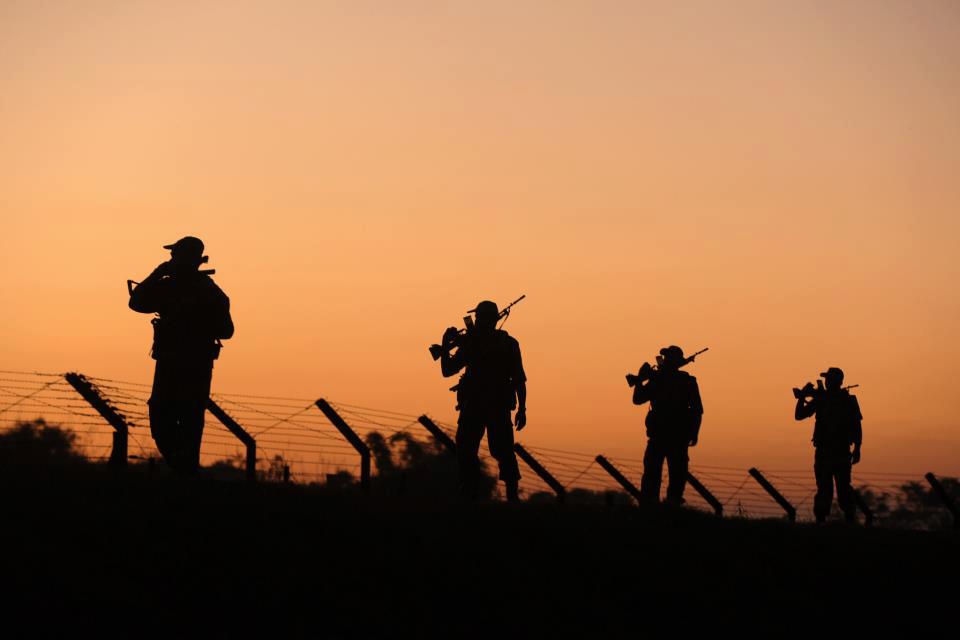IDR Blog
Courage in Question
Retrospective downgrading of military awards taints service ideals – Air Marshal Brijesh D Jayal
The highlight of an annual Republic Day parade is the opening, with the nation honouring yet more of its brave sons or daughters who have displayed courage in the highest traditions of the military. They are conferred the Param Vir Chakra or the Ashok Chakra. After the brief ceremony, festivities take over, giving little opportunity for us to ponder on what culminates in just one or two individuals from over a million-and-a-quarter in uniform to be so honoured and what spirit drives them to make the supreme sacrifice.
Till 1994, there was no distinction in the medals awarded for courage or devotion to duty; the citation itself covered the reason.
The honour and award system is part of military establishments across the world. Across the country, the armed forces remain forever vigilant, safeguarding national air, sea and land frontiers, combating insurgencies, training for war and putting their lives at risk. On an average the nation loses some 100 brave men and women each year in the line of duty.
Within the ranks of each of the services the process of identifying those to be awarded is an annual feature. The unit commanding officers initiate the process with the names moving up the chain of command with strict scrutiny and pruning at various levels until the final names are vetted and shortlisted at the service headquarters and put up to the ministry of defence, which, after further examination, makes recommendations to the president.
On Republic Day, the list of military personnel who are conferred awards for bravery and distinguished service by the president and supreme commander is announced. This list, along with the citation of each awardee, is then promulgated in the Gazette of India, which is an authorized legal document of the government containing the mode of operations under the law of the land. Under normal circumstances for any change to take place, thereafter, it would need the president’s assent and a consequent Gazette modification.
In India, the Sena series (Sena, Nao Sena and Vayu Sena) is awarded for courage or exceptional devotion to duty as relevant to the respective service. The institution of the Vayu Sena medal by the president in recognition of such “individual acts of exceptional devotion to duty or courage as have special significance to the IAF”was promulgated in a Gazette notification in 1960. Till 1994, there was no distinction in the medals awarded for courage or devotion to duty; the citation itself covered the reason. Many a time a display of courage was also accompanied by devotion to duty: the two are not mutually exclusive.
…the service headquarters becoming handmaidens of the defence ministry bureaucracy and being driven to take steps that are not in line with the moral and ethical practices… We have the recent case of the Augusta Westland helicopter where operational requirements were changed by the air force…
From 1998, a policy change resulted in the Vayu Sena medal award being notified separately for courage and devotion to duty, making them two different categories within the same medal. It is possible that this change was driven by the fact that the fifth pay commission conferred some financial benefits/relaxations to gallantry award winners and the defence ministry wanted lists to be pared. According to the Indian air force, there were 753 Vayu Sena medal awardees prior to 1994. It is estimated that around 450 of these citations covered courage as one of the deserving acts.
Any change on an issue as sensitive as this should have been implemented prospectively, but the system thought it best to introduce it retrospectively. The morally upright thing to do would have been to designate all those awardees that had earned the distinction for courage as Vayu Sena medal (Gallantry) with the others for “devotion to duty”.
But for reasons impossible to fathom, it was decided to revisit all the award citations some two to three decades after the events with none of the personalities of the time on the scene to assist in this bureaucratic sleight of hand. Two committees in the air headquarters were tasked to examine all the citations of pre-1994 awardees and recommend in which category each should be placed. According to the air force, “the citations were critically examined in original and in true spirit” after which the air force certified to the defence ministry that 320 of these be converted to Vayu Sena medal (G). By this act the air HQ in its wisdom turned its back on some 130 air warriors of yesteryear, who had selflessly displayed courage for which their then superiors up the chain of command to the supreme commander had accorded them recognition. In the moral and ethical space within which the armed forces live to a contract of unlimited liability to their country, this act of downgrading a citation for courage to one of devotion to duty, appears to this writer as sacrilegious.
For those so dishonoured (this writer admits to being one twice over) whose citation has been unilaterally downgraded by some administrative genius, the feeling of being stripped of an honour, duly accorded, is deeply humiliating and disturbing. One wonders if both the defence ministry and the air force chose to remain silent rather than to inform the awardees of their awards being so downgraded. Does one see in this a quality lacking in moral fibre? Worse still, what about those deceased whose widows and families are now learning that the military-civil bureaucratic system is so heartless that it does not hesitate to derecognize the courage of their loved ones even after death? Could not the families of the dead at least have been spared this humiliation?
On a professional plane, the action taken to downgrade a presidential citation, decades after the event, for administrative reasons is untenable. Equally, changing a citation of a presidential award without presidential review amounts to an irregularity undermining presidential authority. Finally, superseding a Gazette notification through administrative fiat will not stand legal scrutiny.
On the moral plane, how can a “critical examination in original and true spirit” by committees deny acts of courage some two or more decades after the happenings and in the absence of inputs from the then commanders and their entire higher chain of command, who were responsible for the recommendations in the first place? Does the air force leadership truly believe that this action of arbitrarily downgrading and dishonouring awardees retrospectively is in the finest moral traditions of the air force? What impact will this have on those who are displaying courage daily in the line of duty? Could they or their families suffer a similar fate decades hence?
Finally, there is an ethical dilemma. Are the service headquarters becoming handmaidens of the defence ministry bureaucracy and being driven to take steps that are not in line with the moral and ethical practices expected from their own rank and file? We have the recent case of the Augusta Westland helicopter where operational requirements were changed by the air force after pressure from external agencies. The present case seems to be another. One sincerely hopes that this is the end of bad news.
Courtesy: Telegraph.
Post your Comment
One thought on “Courage in Question”
 Loading Comments
Loading Comments





I was awarded a VM in January of 1988, subsequently, I retired prematurely in 1995. I had no idea whatsoever that an exercise of this nature had been conducted. I have become aware of it now, after reading AM BD Jayal’s post.